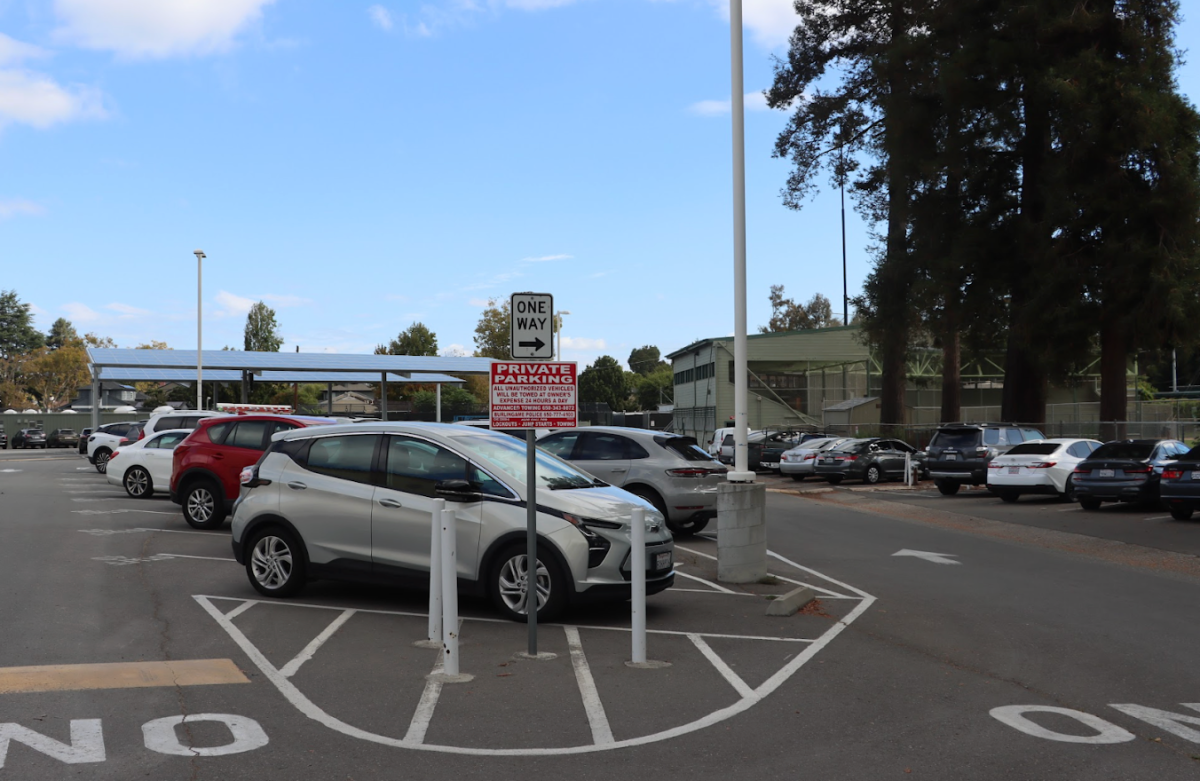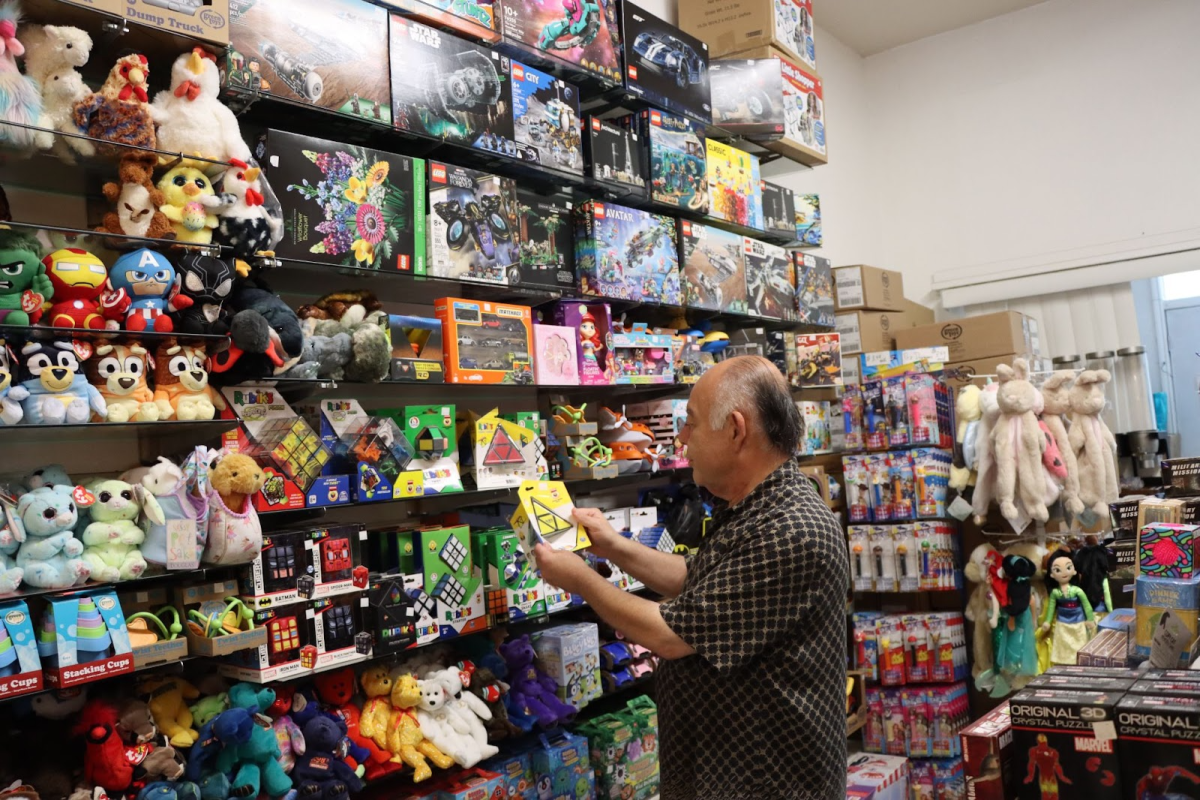On April 2, President Donald Trump announced a 10% baseline tariff on imports from countries not already subject to other penalties and sanctions. Some tariffs have been reduced since then, but they continue to create challenges for local businesses and consumers alike, according to John Kevranian, owner of the Nuts for Candy store on Broadway.
“It’s been terrible. We looked at our invoices and, compared to last year, there has been a tremendous increase in cost, and at the end of the day, that cost the consumer ends up paying, because I can’t absorb that cost. I wouldn’t be in business,” Kevranian said.
Tariffs are taxes that the government places on goods imported into the country. Jon Steinsson, the Chancellor’s Professor of Economics at the University of California, Berkeley, said the tariffs will raise prices and have adverse effects on the overall economy.
“Evidence suggests that raising these tariffs will have negative impacts on the economy. It’ll raise prices domestically,” Steinsson said. “That’s probably the most important thing. It also makes the supply chains less efficient. It’s going to be harder to take advantage of low-cost sourcing of inputs.”
According to Steinsson, the tariffs have changed rapidly, making it especially difficult for businesses to plan ahead. He said he believes businesses may eventually adjust their supply chains to avoid purchasing foreign goods.
“Goods can’t be crossing borders very often when tariffs are high. So that’s going to be a major thing where companies have to change the way they do their supply chain management to avoid goods crossing borders,” Steinsson said.
Kevranian said these tariffs are problematic because many of his products are imported from outside the country.
“In our toy business, the majority of the toys are coming from China. Over 80%, so we have toys from Indonesia, Vietnam, where tariffs [are] less, but the choices are limited, and that is the issue we face,” Kevranian said.

Kevranian stocked up on products before the tariffs took effect, and said his inventory should last another six months. After that, he expects to restock many of his toys at higher rates.
“From January to early March, I did a lot of purchasing where tariffs were reasonable, and we bought a lot of inventory knowing that [Trump] would increase the tariffs. So we’re in good shape, but when we need to buy things as a fill-in, we’re paying extra for gummies from Europe, toys from China, toys from Spain,” Kevranian said.
Derek Fong, owner of Lilikoi, a boba shop on Broadway, said he has also noticed price increases even though he purchases his products domestically. Despite the rising prices, Fong said he is reluctant to switch suppliers because he is familiar with his current sources.
“I could see that being something that I have to research, that could really kind of depend on where this all goes before it expires,” Fong said. “I am happy with them on consistency with their products that I am familiar with. Having to source it elsewhere could also affect consistency in what we serve.”
Senior Ron Vexler said he has not noticed substantial price or inventory changes and believes the costs are not yet being passed on to consumers.
“I think manufacturers and businesses are both absorbing the prices. There is a lot of stuff that is also made in America already that we don’t realize,” Vexler said.
Kevranian said he believes it is important for customers to understand how tariffs affect everyday people.
“The consumer needs to learn the effects of the tariffs and also why these tariffs are hurting people and hurting business owners, hurting lower and middle class families, costing them more out of their income, and they have less spendable income,” Kevranian said.
While tariffs already reach 50% for some countries, Steinsson said he believes they could rise even higher in the future.
“[Trump] does seem to want to raise them more, and that’s been the pattern that there have been more and more tariffs, and he’s talked about tariffs on pharmaceuticals and other industries. So probably we’ll see more tariffs in the next few months,” Steinsson said.



































Grace • Sep 17, 2025 at 1:48 pm
A9 is spot on. To add a little critical thought to this article, why did Derek Fong, owner of Lilikoi, a boba shop on Broadway, say “he has also noticed price increases even though he purchases his products domestically.” Domestic tariffs don’t exist. So, can part of it be the cost of energy thanks to Newsum and the democrat supermajority in California? Or all the regulations the supermajority put on doing business in California? Mr. Fong’s statement blew up Kevranian’s entire premise for this article.
And while Kevranian said he believes it is important for customers to understand how tariffs affect everyday people, I don’t think he is the right person to educate anyone on anything other than Trump Derangements Syndrome.
A9 • Sep 16, 2025 at 9:54 pm
If the tarrifs according to John are making goods more expensive, then what has the CPI gone down?
Why did John not mention the new jobs being created by leveling the playing field with other countries?
Why didn’t John mention the approximate $240 billion being paid by foreign companies to sell their products in the USA?
Why didn’t John mention that the new tariff agreements are opening up new markets for American companies to sell their goods?